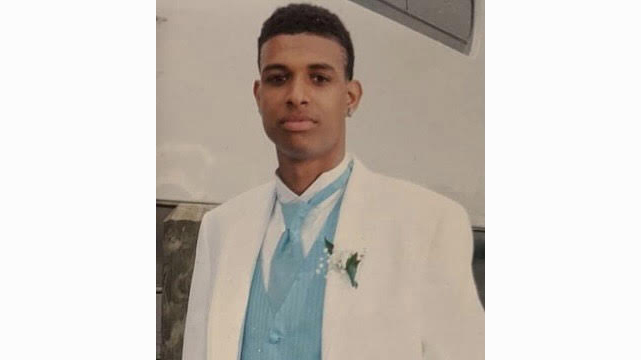Jail warned of inmate’s psych history, housed him with man he’s accused of killing
DETROIT (WXYZ) — Wayne County Jail employees failed to heed multiple red flags involving an inmate now accused of killing his cellmate, including a warning that he suffered from mental illness and may harm others.
Claude Lewis III is accused of brutally murdering his cellmate, Thomas Carr, on July 13th.
But on July 12, the jail was in possession of Lewis’s criminal history, including warnings about his psychiatric history found in the Law Enforcement Information Network (LEIN) inputted by Washtenaw County court officials.
RELATED: Inmate beaten to death inside Wayne County Jail only hours after he got there
It cautioned that Lewis “may harm self or others,” was “unable to attend to basic needs or understand the need for treatment” and had been involuntarily committed a year prior.
The Wayne County Sheriff’s Office declined to comment on the revelations, citing a pending investigation.
It marks the latest sign that the jail failed to heed warnings in the lead up to the brutal attack that deputies told 7 Action News was one of the most gruesome crime scenes they’ve seen.
Lewis was arrested on July 10th after his girlfriend called Romulus police, accusing Lewis of domestic violence. Police records indicate that Lewis had been accused of assaulting the woman previously, and court records show he had a prior conviction for assault.
‘I’m labeled as schizophrenic’
As 7 Action News first reported in July, Lewis was not hiding his mental illness from law enforcement.
In the early hours of July 10, following his girlfriend’s calls to police, Lewis called 911 himself and told a dispatcher: “I am labeled as schizophrenic, bipolar, so the reason why I’m calling is so she can’t get me locked up in jail. I’d rather just go to the psych ward and get assistance.”
But Lewis never made it to a psychiatric hospital.
Instead, he went to the Wayne County Jail where he would be paired with Carr, who was brought to the jail for the charge of operating while impaired.
Hours later, sources say, Lewis attacked Carr for between 30 minutes and two hours.
“No person housed on a misdemeanor case in Wayne County or otherwise should ever face being beaten and tortured and killed in a cell,” said attorney Vince Colella, who has since been retained by Carr’s family.
Due to understaffing throughout the county jails, there was only one deputy assigned to guard the north side of the 11th floor where Lewis and Carr were housed.
But that deputy was missing in action.
Sources confirm he failed to do his hourly rounds, not setting foot on Lewis and Carr’s ward for nearly two hours while the attack took place. That deputy was recently suspended, 7 Action News has learned, and has since resigned.
In Wayne County and every jail, inmates aren’t supposed to be paired together by chance, but by a careful review of their criminal history, physical and mental health history, age and other factors. Steps are supposed to be taken to make sure inmates will be safe together.
But multiple experts in jail inmate classification say that Lewis and Carr’s pairing should have raised alarm bells.
In addition to being accused of domestic violence, Lewis had previously been convicted of assault, according to charging documents.
Records also show he had a personal protection order taken out against him by his girlfriend.
At 28-years-old and 6 foot 5 inches, Lewis was also in much better shape than the 53-year-old Carr, whose family said he had been recently released from a hospital.
“(Carr) was put in with a younger man that had a violent history,” said Virginia Adkins, said his sister.
Red flags in black and white
Sheriff’s officials declined to comment on why the jail paired Lewis with Carr in spite of a a LEIN entry that made note of Lewis’s history of involuntary psychiatric commitments.
The entry listed the case number of Lewis’s probate file in Washtenaw County Court.
The file is public and was reviewed by 7 Action News, showing repeated diagnoses of schizophrenia, that Lewis believed family members were “poisoning his food,” that he was deemed a danger to himself and others and was court ordered for treatment “after threatening to kill his girlfriend and her family.”
Records show Lewis spent time in psychiatric hospitals in 2019, 2020, 2021 and 2022.
Even Lewis’s family says they tried to warn jail officials. Rita Soka is Lewis’s attorney, and says her client’s mother called the jail on July 12, a full day before the attack took place.
“She immediately called the Wayne County jail before he was transported there and notified them about his mental illness and the need of daily medications,” Soka said.
She says her call was transferred to the nurse’s station, but no one answered. Soka says Lewis’s mother left a voicemail that, nearly a month later, hasn’t been returned.
The next day, Carr was beaten in his cell. He died after his family took him off life support.
“It’s not the fault of one person,” Soka said of the missed opportunities. “It’s the fault of multiple people.”
7 Action News shared the information about with Tom Watkins, a longtime mental health advocate and the former CEO of the Detroit Wayne Mental Health Authority.
“They should have known he had this history,” Watkins said. “And if they did know it, they didn’t take the proper precautions.”
Citing pending criminal and internal investigations, the Wayne County Sheriff’s Office declined to comment on WXYZ’s reporting, but said in part: “Sheriff Raphael Washington continues to balance jail security, the safety of our officers, as well as our inmates. Upon completion of these investigations, the Wayne County Sheriff’s Office will take the necessary actions to address any concerns regarding how its policies and procedures were implemented.”
A joint task force of Detroit and Michigan State Police is currently investigating Carr’s homicide, while Wayne County continues an internal affairs investigation into the attack.
“If they would have done their job, maybe an individual would be alive today and a person wouldn’t be looking at murder charges,” Watkins said. “Two lives, if not many more…are ruined forever.”




